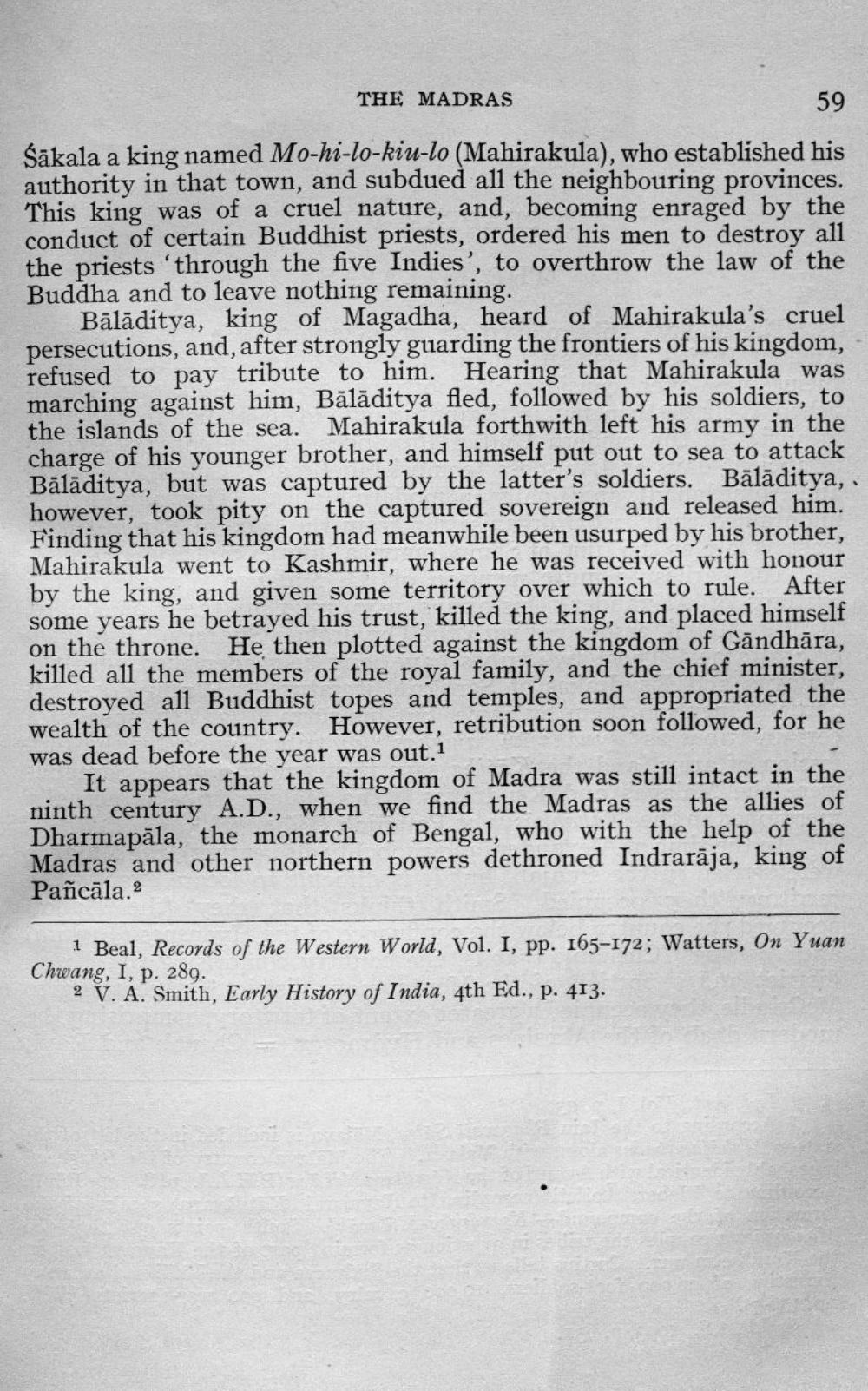________________
THE MADRAS
59
Šakala a king named Mo-hi-lo-kiu-lo (Mahirakula), who established his authority in that town, and subdued all the neighbouring provinces. This king was of a cruel nature, and, becoming enraged by the conduct of certain Buddhist priests, ordered his men to destroy all the priests 'through the five Indies', to overthrow the law of the Buddha and to leave nothing remaining.
Baladitya, king of Magadha, heard of Mahirakula's cruel persecutions, and, after strongly guarding the frontiers of his kingdom, refused to pay tribute to him. Hearing that Mahirakula was marching against him, Bālāditya fled, followed by his soldiers, to the islands of the sea. Mahirakula forthwith left his army in the charge of his younger brother, and himself put out to sea to attack Baladitya, but was captured by the latter's soldiers. Bālāditya,. however, took pity on the captured sovereign and released him. Finding that his kingdom had meanwhile been usurped by his brother, Mahirakula went to Kashmir, where he was received with honour by the king, and given some territory over which to rule. After some years he betrayed his trust, killed the king, and placed himself on the throne. He then plotted against the kingdom of Gandhāra, killed all the members of the royal family, and the chief minister, destroyed all Buddhist topes and temples, and appropriated the wealth of the country. However, retribution soon followed, for he was dead before the year was out.1
It appears that the kingdom of Madra was still intact in the ninth century A.D., when we find the Madras as the allies of Dharmapala, the monarch of Bengal, who with the help of the Madras and other northern powers dethroned Indraraja, king of Pañcāla.2
1 Beal, Records of the Western World, Vol. I, pp. 165-172; Watters, On Yuan Chwang, I, p. 289.
2 V. A. Smith, Early History of India, 4th Ed., p. 413.




